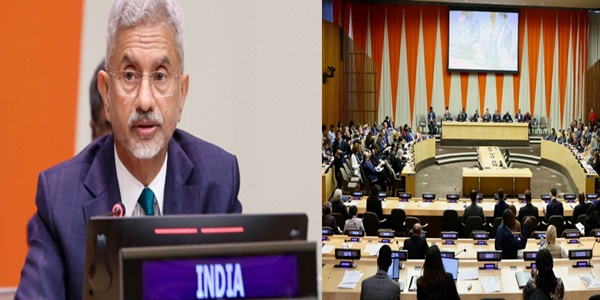Last Updated on September 26, 2024 6:00 pm by INDIAN AWAAZ

AMN / WEB DESK
INDIA’S External Affairs Minister Dr S. Jaishankar participated in the G20 Foreign Ministers’ Meeting held in New York yesterday on the margins of the UN General Assembly. The meeting was chaired by Brazil President Lula da Silva.
Speaking as a Troika member, Dr Jaishankar highlighted India’s views on the three key areas of global governance reform. These are reforms of the UN and its subsidiary bodies, reforms of the international financial architecture, and reforms of the multilateral trading system.
The External Affairs Minister recalled that significant strides were made during India’s G20 Presidency, wherein the leaders had called for expanding development and climate finance. The leaders had encouraged multilateral development banks (MDBs) to refine their vision, incentive structures, operational approaches, and financial capacities to maximise their developmental impact. The Brazilian Presidency’s 2024 G20 Roadmap for better, bigger, and more effective MDBs builds on the New Delhi mandate and the recommendations of the 2023 G20 Independent Expert Group on Strengthening MDBs.
Jaishankar described the UN as “a prisoner of the past,” stressing the need for its evolution to reflect the contemporary global landscape. “The world has transformed into a smart, interconnected, and multipolar arena, with member states increasing fourfold since the UN’s inception. However, the UN has struggled to keep pace, particularly within the Security Council, which faces challenges in fulfilling its mandate to maintain international peace and stability, thereby undermining its effectiveness and credibility,” he said.
According to a statement from the Ministry of External Affairs, the Brazilian Presidency’s 2024 G20 Roadmap aims to create better, larger, and more effective MDBs, building on the New Delhi mandate and the recommendations from the 2023 G20 Independent Expert Group on Strengthening MDBs.
The foreign ministers endorsed a “Call to Action on Global Governance Reform” in the meeting, reinforcing the urgency for UN reforms to ensure representative, credible, and effective multilateralism.
